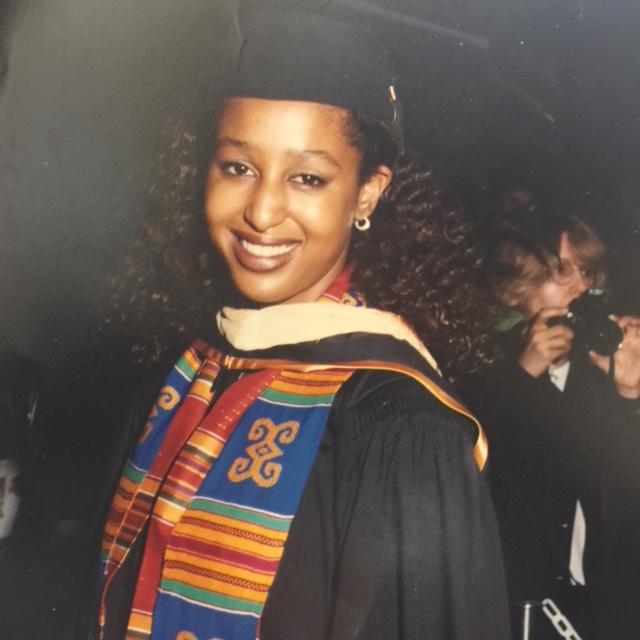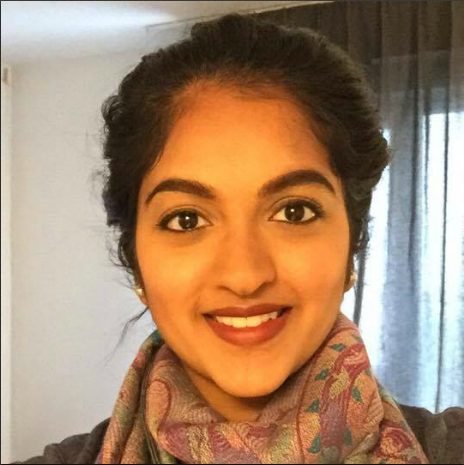学校辅导真是太神奇了……你拥有彻底改变孩子人生轨迹的力量。
丽莎·安德鲁斯是加利福尼亚州波莫纳联合学区的学校辅导员。在职业生涯中,安德鲁斯女士始终致力于服务社会中最脆弱的群体,通过赋能帮助他们实现积极改变。 作为学校咨询领域的新锐领袖,安德鲁斯女士屡获邀在各类会议及多所学校的咨询培训项目中发表演讲。她尤其热衷于突破常规、质疑现有咨询准则。安德鲁斯女士始终超越职责范畴,为学生开发创新性的大学与职业准备项目。
安德鲁斯女士,请谈谈您迄今为止的职业历程。

我出身于一个教育世家。母亲是小学教师——她所在学区首批黑人教师之一——父亲则是临床心理学家,长期在城市贫民区提供心理健康服务。因此,我投身这一行业可谓命中注定。
我最初进入雷德兰兹大学攻读本科,目标是成为一名言语病理学家。毕业后,我最重要的两份工作都与社会工作相关:先是在洛杉矶市中心为无家可归者提供服务,后来则在康普顿市一家名为"家庭盾牌"的机构工作,那里是一家提供住宿的戒毒戒酒治疗中心。
基于这些经历,我决定将社会工作作为职业方向,于是进入南加州大学攻读社会工作硕士学位,主攻家庭与儿童领域。在此期间,我还获得了学生事务服务(PPS)资格认证,这使我能够在学校从事儿童相关工作。
我在学校环境中的第一份工作是在波莫纳市一所公立学校担任指定教学服务(DIS)顾问及行为干预案例经理。虽然我享受这份工作(其中一项收获是掌握了大量行政管理和领导技能),但我真正渴望拓展视野,在学区层面开展工作。 这促使我加入波莫纳联合学区,负责管理针对行为问题、家庭困境或社会经济因素影响学业的学生制定干预计划的项目。此后四年间,我为该学区多所学校实施了此类项目。
当时,心理健康在学校环境中并未得到充分重视,因此我很难与校方合作推动项目落地。最终我重返康考迪亚大学深造,获得了教育领导学硕士学位及专业资格认证。 我意识到不仅需要掌握专业知识,更要学会用管理层和教育工作者能理解的语言沟通——这样他们才能认同我的项目,而我也能更好地理解他们的核心诉求。
我在这份工作上坚持了一段时间,却因其局限性而感到沮丧。我只能在学校体系内处理心理健康问题,而这仅仅是学生生活的一小部分。就像你只是暂时帮他们撑过难关,放学前后他们又回到损害心理健康的环境中,你不得不从头再来。
我意识到帮助学生的最佳方式是将心理健康与教育实践相结合,从而赋予他们摆脱困境的力量。正是如此,我踏上了学校辅导员的岗位,并为此前往拉文大学攻读了第三个硕士学位——学校辅导学硕士,同时获得了加州公立学校系统(PPS)颁发的学校辅导专项资质证书。自此,我便一直从事学校辅导工作。
是什么促使你选择这条职业道路?
真正激励我的,是曾在波莫纳市的工作经历。当时乃至如今,这里仍是南加州经济最萧条的社区之一,青少年怀孕率居高不下,帮派暴力频发,识字率极低。在政治层面,波莫纳被经济与社会服务体系所排斥。然而该市45%的人口属于14至25岁的青年群体。 面对这些数据,我意识到改变现状的唯一途径是赋能学生实现高等教育或职业培训目标,使他们未来能回馈社区。学校辅导工作正因如此而意义非凡——你完全有能力改变一个孩子的生命轨迹。当你通过教育赋能第一代学生时,就确保了后续世代至少有一位家庭成员获得高等教育赋能。 我认为这是极具影响力的工作领域。你拥有彻底改变世界格局的能力,为后世孕育卓越人才。
你最引以为豪的个人成就是什么?
去年,我有幸见证了本校二十年来成绩最优异的毕业班。这并非完全归功于我个人,很大程度上源于学生们自身的坚定意志,以及他们将经历转化为动力源泉的能力,最终成就了无与伦比的学业辉煌。 但在担任辅导员的四年间,我自豪地以创新思维和创业精神投入工作。这意味着我学会创建可扩展、可复制的全校性项目,这些项目既契合学校与学区的教育目标,也符合专业学校辅导的使命愿景。项目包含系列全校性会议与活动,旨在传授大学知识、培养技能与入学准备能力,同时提升领导力并拓宽学生对社会趋势的认知视野。 我推行了全校性的联邦学生资助申请(FAFSA)宣传活动,确保学生获得实现大学梦想所需的经济支持。此类举措对构建以大学入学意识为根基的校园文化至关重要。我最引以为豪的成就是成为敢于质疑现有模式、勇于提出改进方案的学校咨询领导者。
成为学校辅导员之前,你是否希望自己能知道某些事情?
我了解到教育行业充满政治色彩。投身此行业者必须精通人际交往技巧,掌握谈判与倡导的艺术。简言之,你首先要洞悉教育体系的复杂性,识别同事的需求,同时为学生和同仁的诉求发声,并始终恪守学校的宗旨与使命。 作为学校辅导员,你既是学生的代言人,也是家长、同事(教师)、校方管理层乃至自身的倡导者。在协调各方复杂需求时,你必须展现前所未有的领导力与处世智慧。人际交往能力与直觉判断力,正是实现多方利益平衡的关键所在。
我始终遵循的一个处事模式是:既融入群体(程度恰到好处,以便建立良好关系、发展盟友、培养归属感与团队精神,让所有合作对象都明白我始终以工作利益为重),又保持独立(我退后一步,从容分析局势、个体及自身定位,从而制定出有效解决方案)。
作为学校辅导员,你希望每个高中生都能做到什么?
我希望每位高中生都能提升自己的媒体素养、文化素养和世界认知能力,加深对社会趋势的理解。这样他们才能制定可持续的教育规划和升学计划,在当今世界中蓬勃发展。 培养"批判性意识"至关重要——这意味着学会审视世界及其内在矛盾,并判断这些矛盾如何影响自身定位。实现这一目标的有效途径是:多读书、关注时事,而非沉迷于更新脸书状态。
此外,我希望每位学生都能思考我在咨询实践中秉持的理念:无论你认为高中毕业后想做什么,都要确保自己的学业表现和时间安排能支撑进入四年制大学。这样当你毕业时,就能以最高水平做好准备,并能享受更广泛的选择空间(四年制大学、两年制大学、参军、职业学校等)。
对于想追随你职业道路的学生,你有什么最后的建议吗?
我认为关键在于明确自己在咨询领域想要扮演的角色。有些人毕业后会成为学校辅导员并安于此职,但另一些人则会在此基础上不断晋升,对整个行业产生更深远的影响。这些发展路径包括:成为倡导者、影响政策制定,或是成为创业型学校辅导员——他们设计支持全体学生的指导项目。 要在这一领域卓有成效,必须时刻关注通识教育领域的最新趋势与动态,同时紧跟本行业的专业动向。保持信息前沿性,方能为实现理想影响注入源源不断的灵感。




